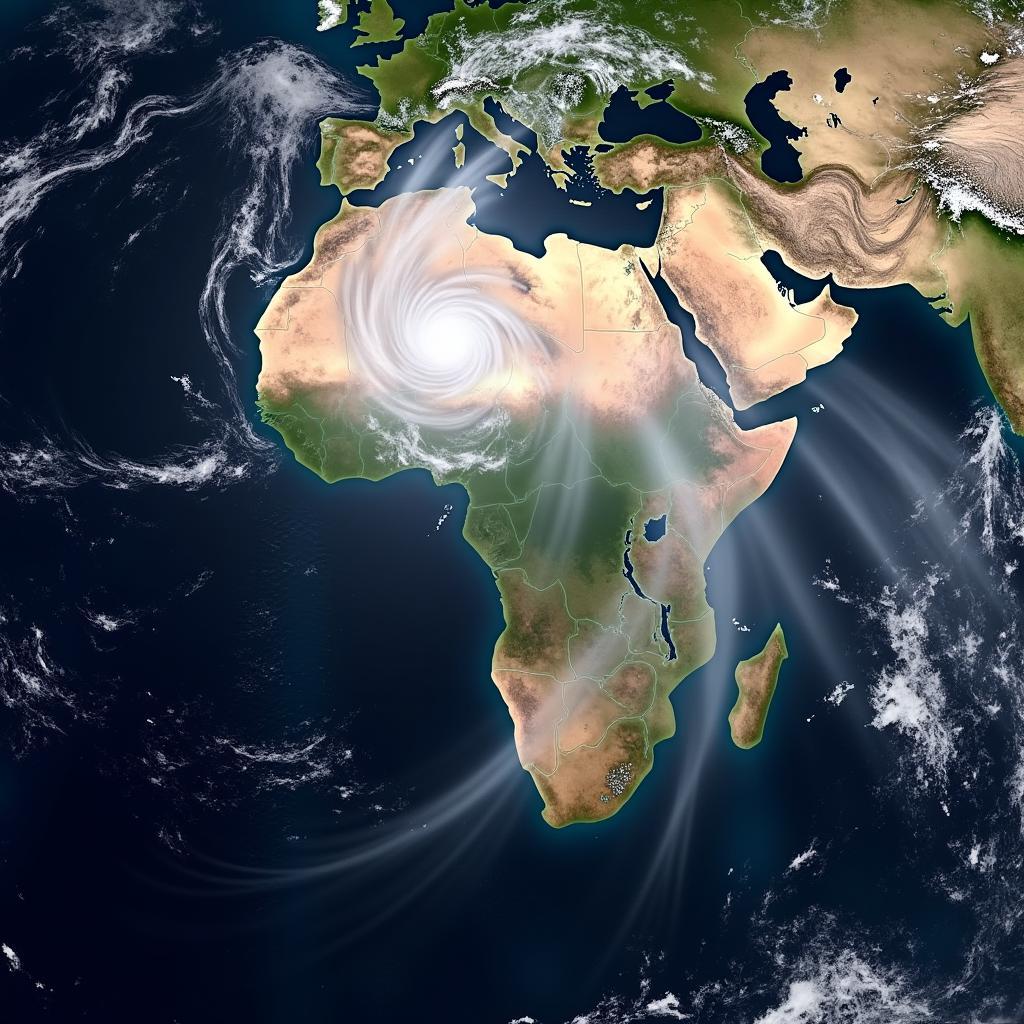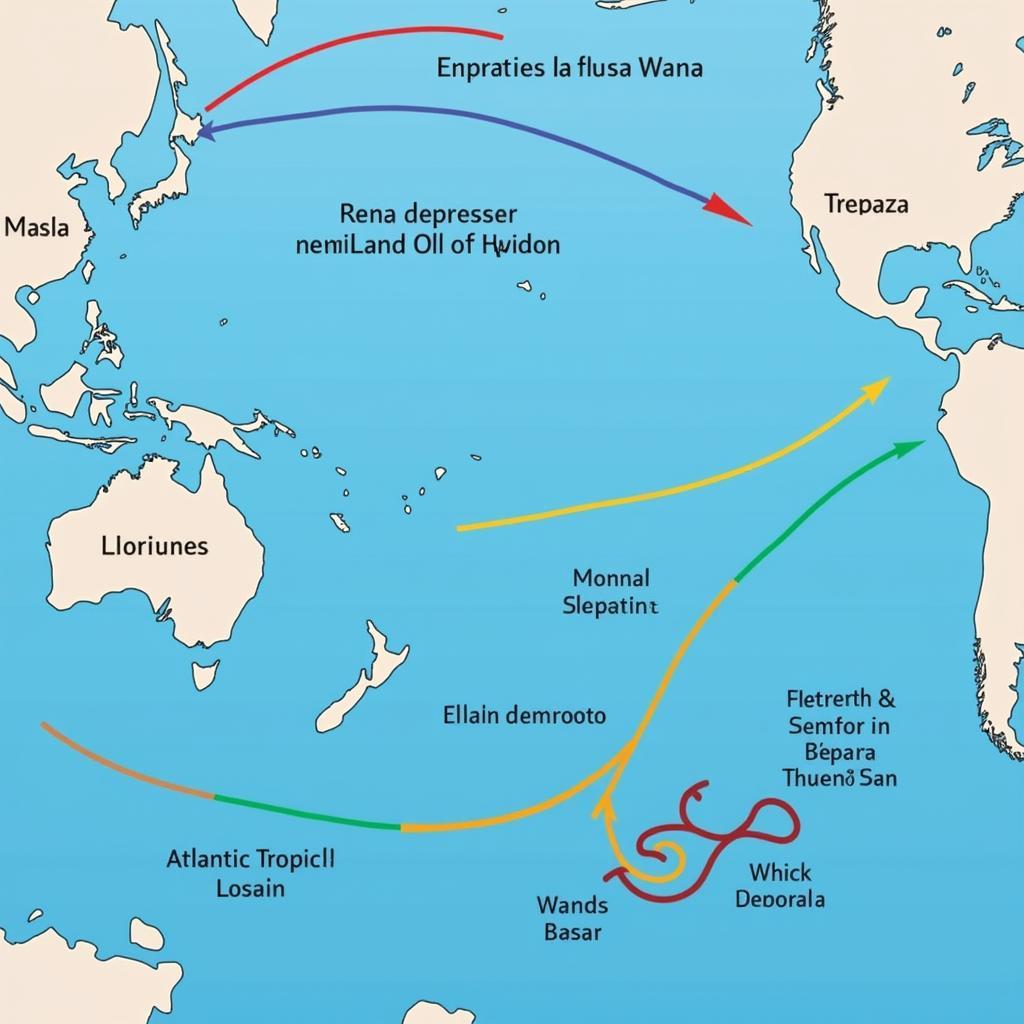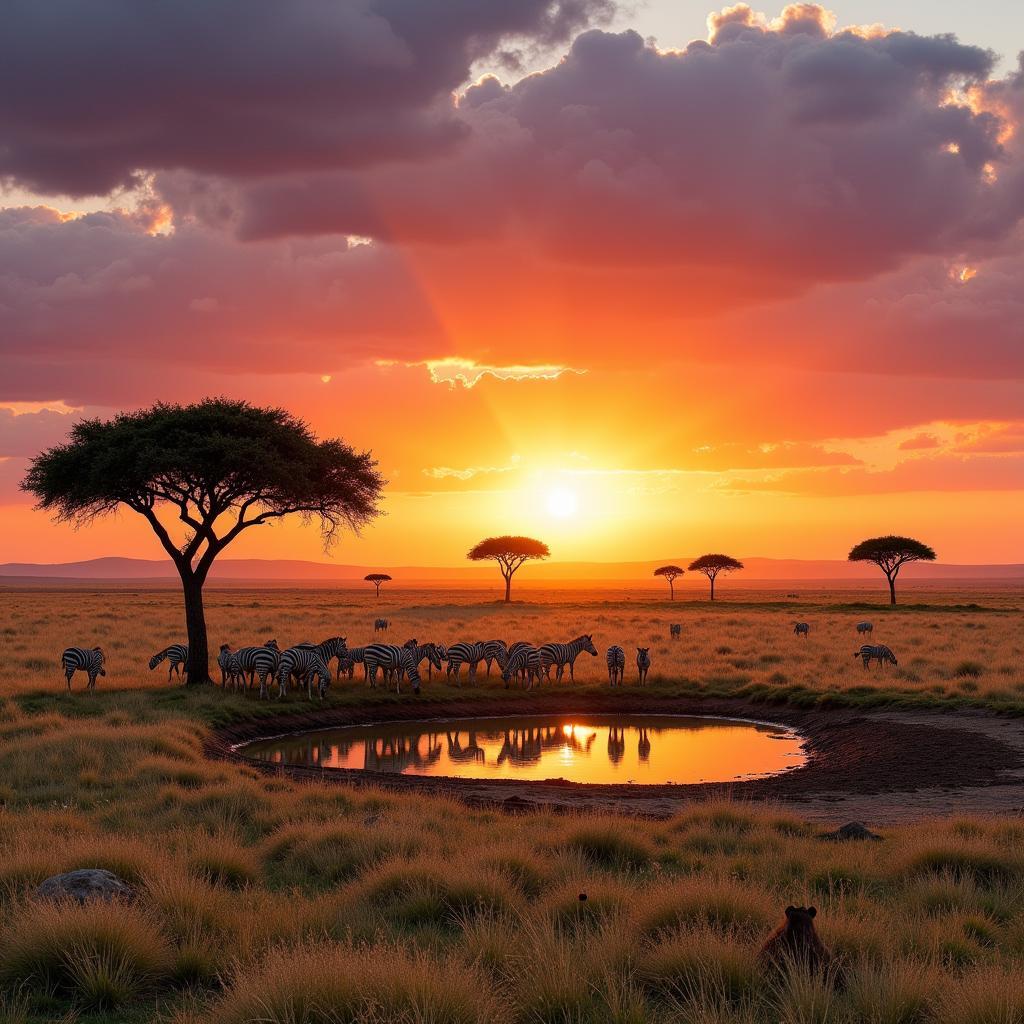Unmasking the African Hurricane: A Myth or Meteorological Mystery?
The term “African hurricane” often stirs curiosity and confusion. Unlike the well-known hurricanes of the Atlantic or typhoons of the Pacific, Africa isn’t typically associated with these swirling storms. So, what’s the truth behind this intriguing phrase?
Debunking the Myth: Hurricanes and Their African Roots
While the term “African hurricane” itself might be a misnomer, it hints at a fascinating meteorological connection. Hurricanes, those powerful tropical cyclones known for their destructive force, actually find their origins off the west coast of Africa.
These storms begin as humble clusters of thunderstorms fueled by warm ocean waters and favorable atmospheric conditions. As they drift westward over the Atlantic, propelled by trade winds, they gain strength, evolving from tropical depressions to tropical storms and potentially, under the right conditions, into full-fledged hurricanes.
 Thunderstorms forming over Africa
Thunderstorms forming over Africa
The Journey of a Hurricane: From African Birthplace to Atlantic Fury
The journey of a hurricane from its African birthplace to a potential landfall in the Americas is a complex dance of weather patterns, ocean currents, and atmospheric pressure. Factors like wind shear (changes in wind speed and direction with height) and the presence of dry air can either fuel or hinder a storm’s development.
 Hurricane developing over the Atlantic Ocean
Hurricane developing over the Atlantic Ocean
Why “African Hurricane” Persists: Tracing the Linguistic Roots
The term “African hurricane,” though technically inaccurate, likely persists due to the geographical origin of these storms. It’s a way to connect the dots between where hurricanes form and where they eventually make landfall, highlighting the interconnectedness of global weather patterns.
However, it’s crucial to remember that the correct terminology for these storms depends on their location and intensity. While they may originate off the coast of Africa, once they reach a certain wind speed and structure, they are classified as hurricanes, typhoons, or cyclones depending on the specific ocean basin.
Beyond the Name: Understanding the Impact of Hurricanes
Regardless of what we call them, these powerful storms have a profound impact on coastal communities around the world. From torrential rainfall and storm surges to destructive winds, hurricanes demand our respect and preparedness.
By understanding their formation, tracking their progress, and heeding warnings from meteorological agencies, we can mitigate the risks and protect lives and property.
Conclusion
While “African hurricane” might not be a scientifically accurate term, it reminds us of the interconnectedness of our planet’s weather systems. These powerful storms, born off the coast of Africa, have the potential to travel across the Atlantic, leaving their mark on distant shores. By understanding their origins and respecting their destructive power, we can better prepare for and mitigate the impact of these formidable forces of nature.

